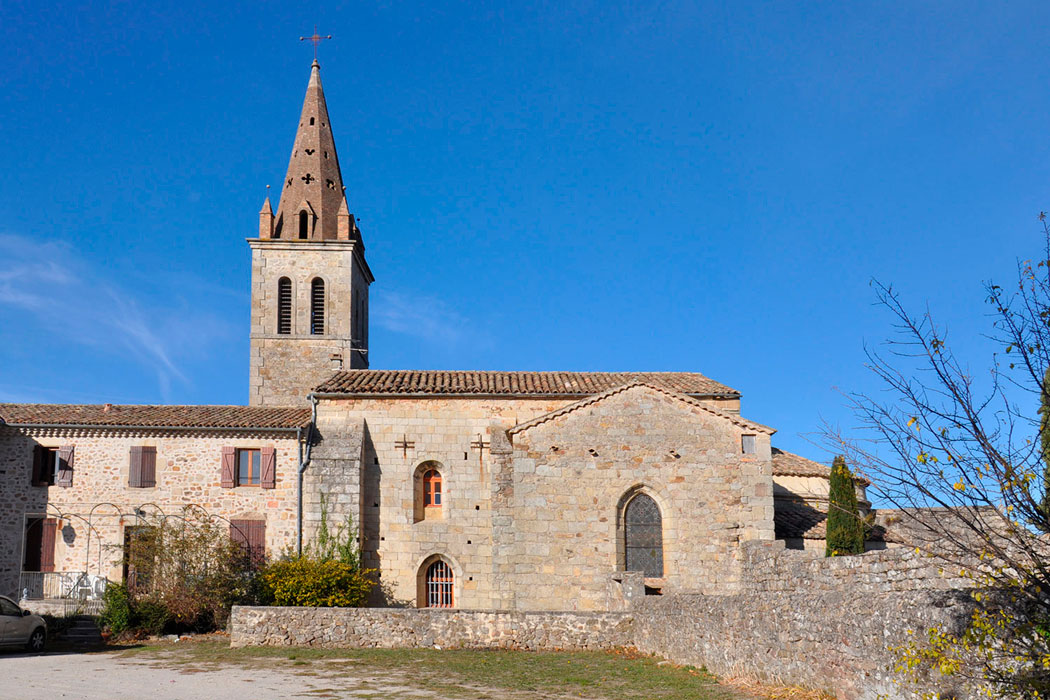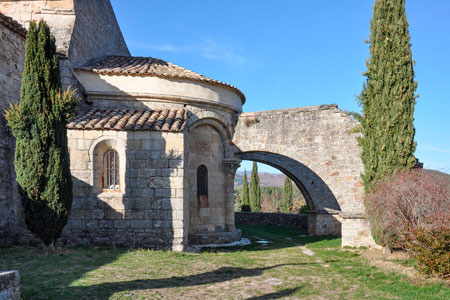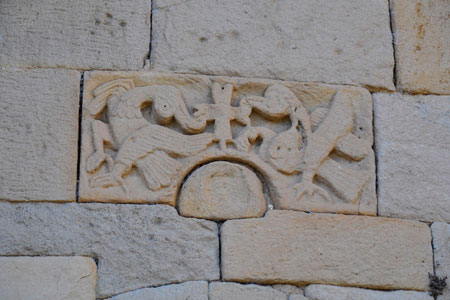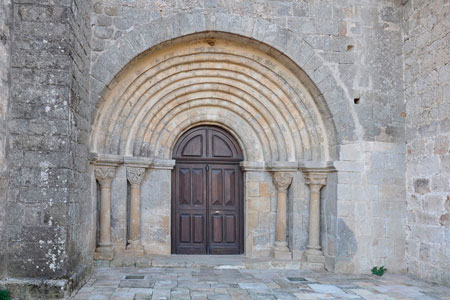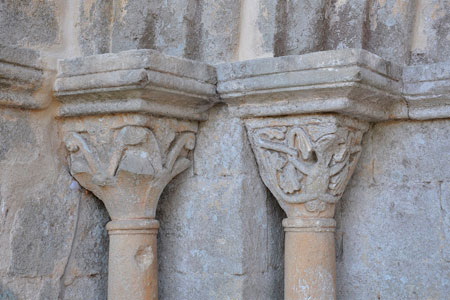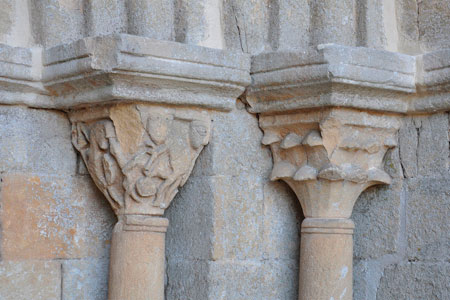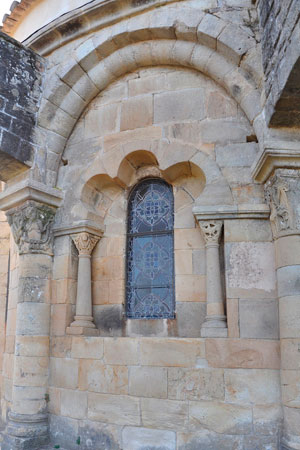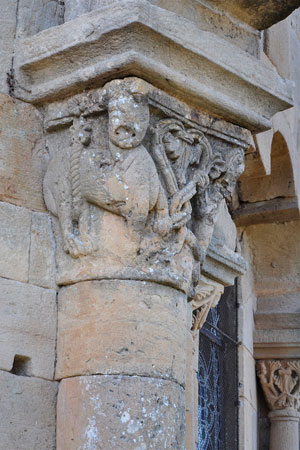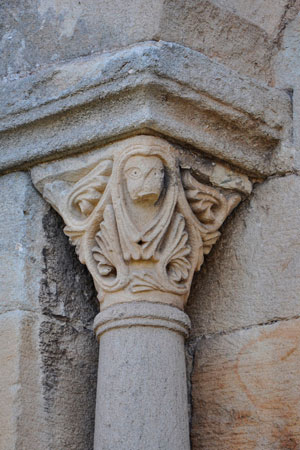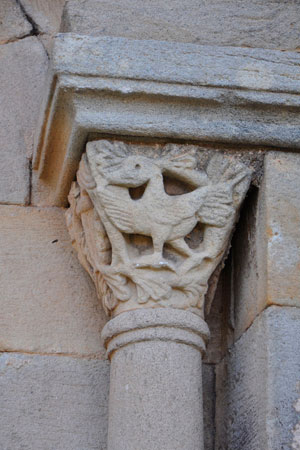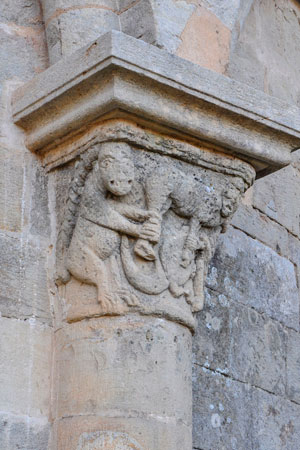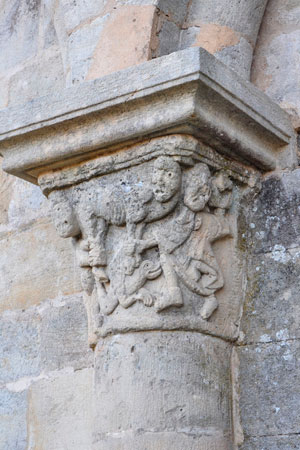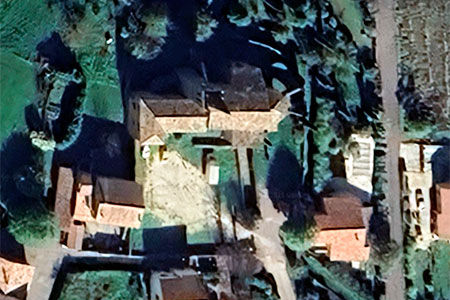The details of the foundation of this church, dedicated to Saint Julian the Hospitaller, are unknown. It was initially linked to the Priory of Ucel (Ardèche), but in the last quarter of the eleventh century it became a priory of the Abbey of Saint-Chaffre (Haute-Loire), a situation confirmed by several papal bulls issued in favour of that monastery. In this new phase, during the twelfth century, the church was rebuilt.
It was an establishment with a certain economic stability thanks to its agricultural activity, a circumstance that may explain the fine sculptural decoration still preserved. During the sixteenth century, three Gothic chapels were added to the original Romanesque nave. Thanks to the protection of the lords of Aubenas and its isolated location, it was not directly affected by the Wars of Religion. In the seventeenth century new constructions altered the appearance of the church, such as the flying buttresses supporting the apse. Further architectural interventions were carried out in the nineteenth century. The church consists of a single nave, with an apse and later-added chapels. The bell tower dates from the nineteenth century.
- BESSE, J.-M.; i altres (1939). Abbayes et prieurés de l'ancienne France. Vol. 9: Province ecclésiastique de Vienne. Abbaye de Ligugé
- LE SOURD, Auguste (1925-26). L’église de Saint-Julien du Serre. Revue du Vivarais. Vols. 32-33
- SAINT-ANDÉOL, M. de (1858). Notice sur les églises romanes du Bas-Vivarais. 1857 ss. Congrès archéologique de France. Société française d'archéologie
- SAINT-JEAN, Robert (1991). Vivarais Gévaudan romans. La Pierre-qui-Vire: Zodiaque
